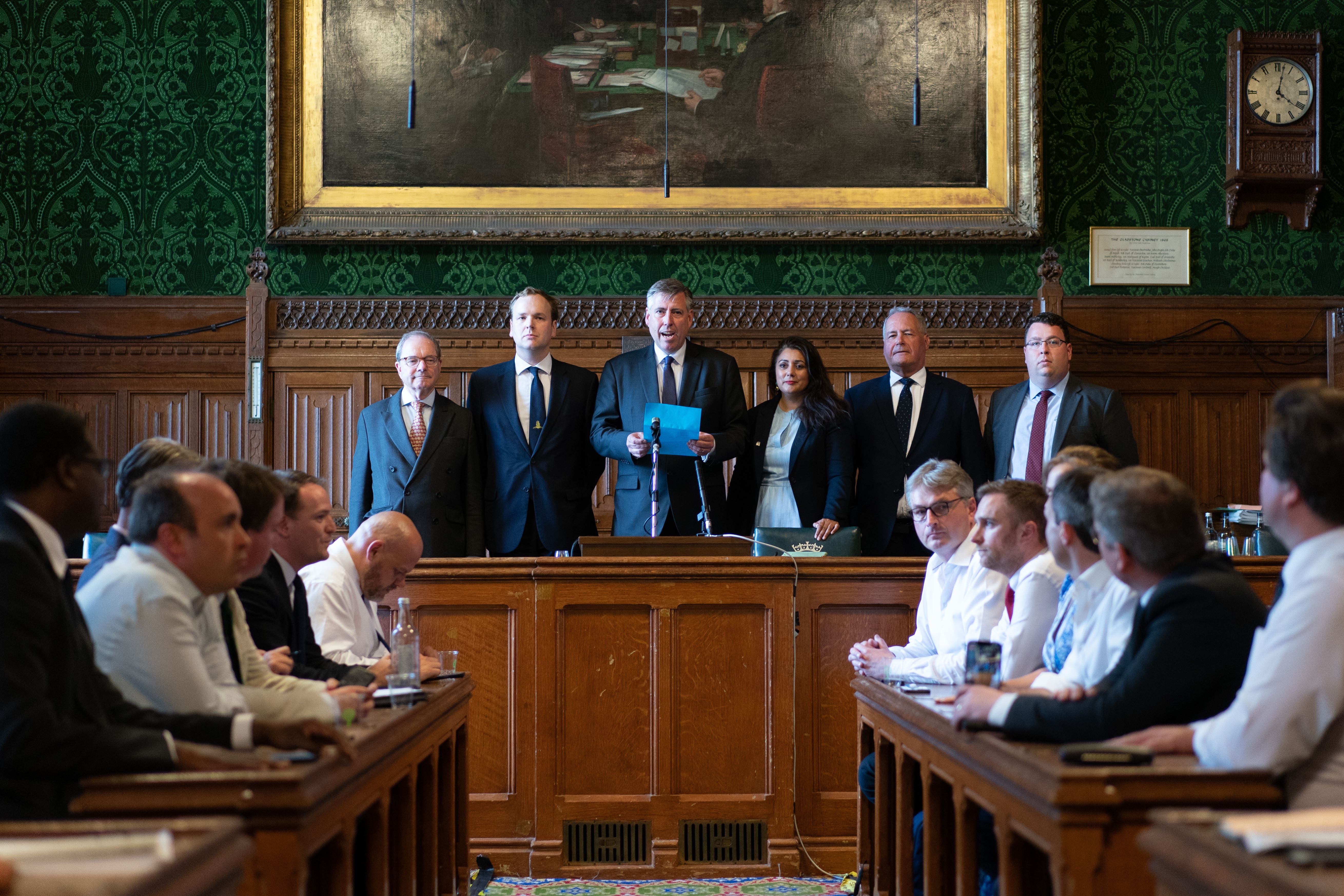‘It’s pretty bad, isn’t it?’ Sir Graham Brady reveals moment Liz Truss realised she had to quit as PM
The then-prime minister agreed her premiership was ‘not retrievable’, the chairman of the 1922 Committee has said
Your support helps us to tell the story
From reproductive rights to climate change to Big Tech, The Independent is on the ground when the story is developing. Whether it's investigating the financials of Elon Musk's pro-Trump PAC or producing our latest documentary, 'The A Word', which shines a light on the American women fighting for reproductive rights, we know how important it is to parse out the facts from the messaging.
At such a critical moment in US history, we need reporters on the ground. Your donation allows us to keep sending journalists to speak to both sides of the story.
The Independent is trusted by Americans across the entire political spectrum. And unlike many other quality news outlets, we choose not to lock Americans out of our reporting and analysis with paywalls. We believe quality journalism should be available to everyone, paid for by those who can afford it.
Your support makes all the difference.Liz Truss had accepted she would have to quit even before being told how many Tory MPs had submitted letters of no confidence in her, the chairman of the group of backbenchers has revealed.
Sir Graham Brady suggested the then-prime minister knew her time in No 10 was doomed and that she had decided not to fight on before he explained how unhappy backbenchers were – all of which made his job easier.
“I was reaching for my phone when I got a message saying the prime minister had asked to see me,” the 1922 Committee chair told the BBC.
“When I went in to see her with her chief of staff Mark Fullbrook, she asked me the question. She said, ‘It’s pretty bad, isn’t it?’ To which I replied, ‘Yes, it is pretty bad’.”
“She asked the second question, ‘Do you think it’s retrievable?’. And I said ‘No, I don’t think it is’. And she replied that she didn’t, either.”
Ms Truss announced on 20 October she would resign as prime minister after just 45 days in office, characterised by turmoil.
Her mini-Budget with Kwasi Kwarteng sent the markets into a nosedive, threatening people’s pensions and costing him his job, and home secretary Suella Braverman stood down over a security breach.

She was also accused of presiding over chaos when Labour’s opposition day vote on fracking was initially flagged as a confidence vote in the government, leading to claims that Tory MPs were physically manhandled by colleagues in the voting lobby.
As more backbenchers spoke out, it became clear Ms Truss could not retain their confidence.
Sir Graham went on: “I’ve had the unique distinction of having these conversations with three prime ministers, and in many ways it was the easiest, most straightforward because she had come to the same conclusion.”

By contrast, Boris Johnson was “still determined to go on” the night before he announced his resignation in July, Sir Graham revealed.
“He mulled it over after that, and he called me early the next morning to say that he’d changed his mind,” he said.




Join our commenting forum
Join thought-provoking conversations, follow other Independent readers and see their replies
Comments